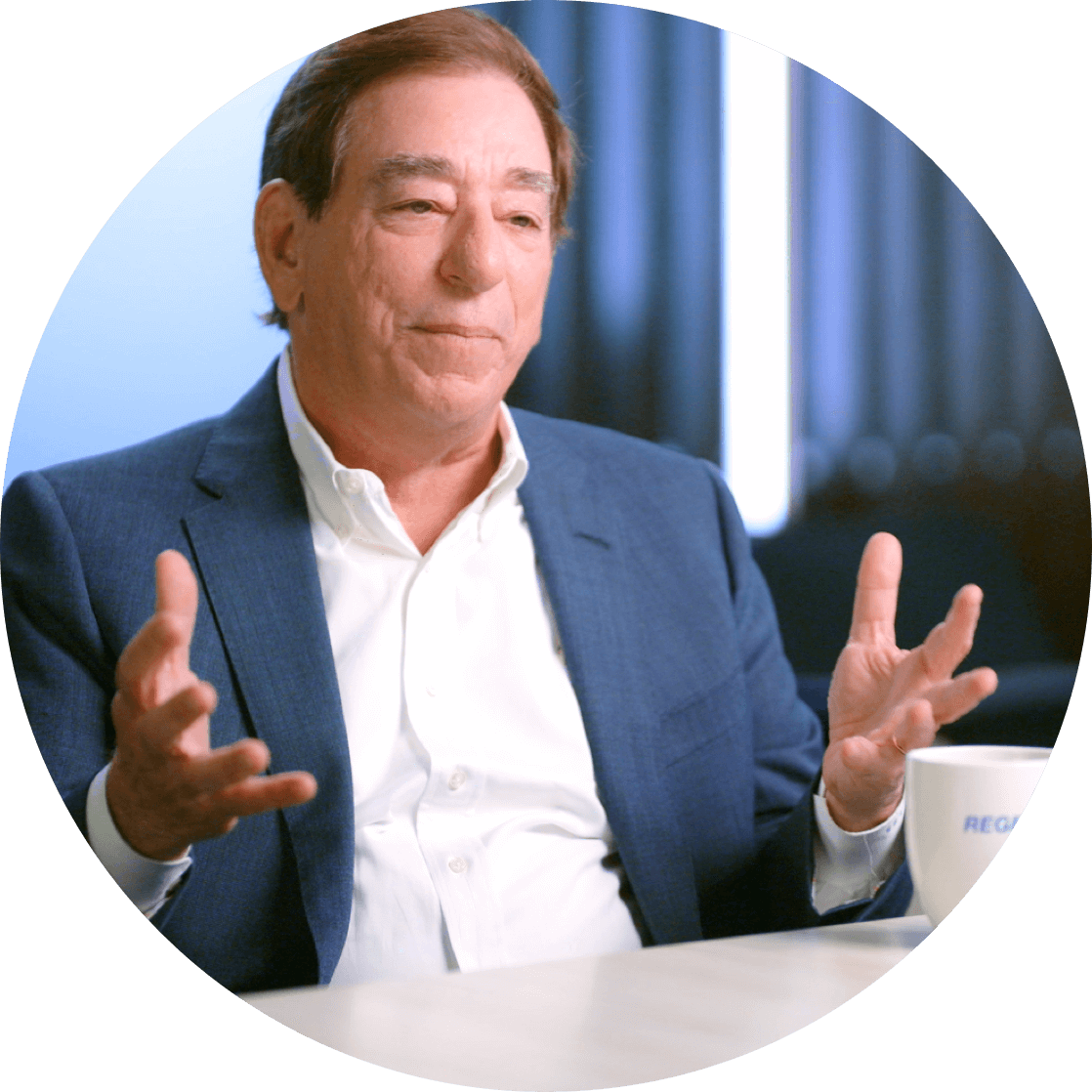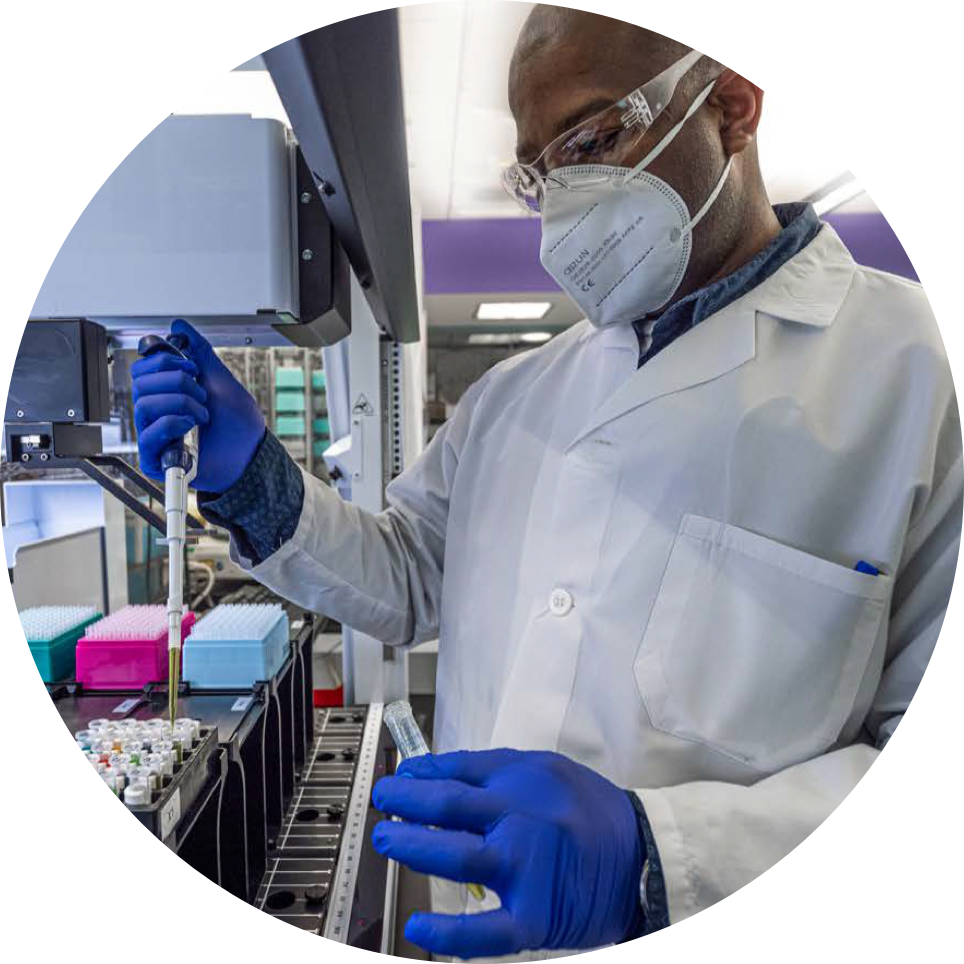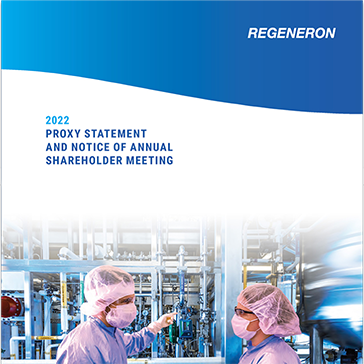George Yancopoulos, MD, PhD, President and Chief Scientific Officer: Well Len, obviously 2021, a year we'll never forget. What do you think about 2021?
Leonard (Len) Schleifer, MD, PhD, Founder, President and CEO: 2021 was an amazing year. Remarkably enough, in 2021, despite COVID, despite the effects that COVID has on your operations, the fact that we had so much attention focused on COVID, we were still able to grow our core business and advance our science and our pipeline in a remarkable way.
George: What I couldn't be prouder of is the fact that we're continuing to push that edge further and further forward. We're not losing anything here. We're just getting better. And 2021 was a great example of this. In many ways, so much of what we did was built on a lot of our technologies and platforms, but they were constantly being taken to the next level. Obviously, one spectacular example is the contribution that our scientists made in terms of our ability to help in the fight against COVID, but we didn't slow down in our efforts against all these other diseases. We've really made enormous progress, and this speaks to the breadth and depth of our pipeline.
Len: Our pipeline is getting very complex. It's because our science is so prolific. We've got so many great ideas that are turning into so many product candidates. Finding people, finding organizations who are striving for the same thing; making patients' lives better. We wanna work with those people. We recognize there's a lot of talent out there.
George: And I think this is what we've been doing with some of our most important outside collaborators, and this is why I think we're so excited, whether it's the Alnylam collaboration, the Intellia collaboration, the Decibel collaboration, or a number of collaborations we have in the cancer vaccine space. We're excited about the fact that this is real opportunity for synergy. And when you do that, you can really take the science and the potential to the whole next level.
Len: George, why do you think our commitment to STEM is so important?
George: We could really make a difference in this fight. It's intrinsic to our mission to make sure that we do what we can to engage and inspire the next generation of great scientists.
Len: Regeneron believes in the Socratic method. We question everything, and we try and get at truths by asking questions, and it doesn't matter who asks the questions. Everybody should ask the questions. And it doesn't matter who provides the answers. We're seeking truths. We're not seeking the most senior person gives the answer. We're seeking the right answer.
George: Next generation and next generation after that of young, talented scientists that I see every day in these meetings coming up with brilliant, new ideas. That's what gets me so excited about the future.
Len: As we look forward to 22 and beyond, I would say Regeneron will do what it's always done, which is take the long-term view. And the long-term view, I believe, in our business is in part going to be advances that occur through genetics. We have some 2025 goals on sustainability and diversity, and we are going to strive to achieve those. And we're going to keep track and let people know how we're doing.
George: We could do well by doing good. And we've spent the last 30-plus years committed to this mission.
Len: We don't only want to help people's lives, we want to do it in a high integrity way. We want to be a good member of the community. We're looking forward to the decade-long effort of these things. We've had one goal since the beginning of Regeneron, and it's been the same goal, whether we were just a few dozen people, or whether we're over 10,000 people, it's to use science to make a difference in people's lives.
George: We're not running out of ideas, we're coming up with more and better ideas all the time. And now, we have the resources and the technologies to help make them happen.



